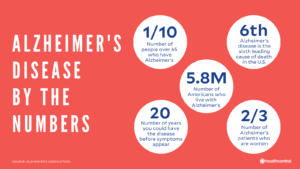“Aging and its evidence remain life’s most predictable events, yet they also remain matters we prefer to leave unmentioned, unexplored.”
My wife and I have grown quite comfortable in discussing death—both in the abstract and in our particular cases. I highly recommend the advantages of becoming conversant about death. It’s going to happen whether or not we talk about it in advance.
We have experienced death and, like all others of our generation, we are hearing of death’s inexorable approach toward more and more friends and family.
The Way of Zen is “The Way of Death”. One of the ways we have tried to prepare ourselves for the inevitable is to have taken up the practice of mindfulness meditation. The Zen tradition, from which mindfulness meditation is derived, “is actually all about death, and Zen meditation (Zazen) is not only a preparation for death but in so far as in meditation we realise the illusory nature of the Self, it is actually meeting death head on and walking right through!” says Jeremy Sellers of Cedar Education. He continues, “’The Way of Zen’ could also be called ‘The Way of Death’. And in Zen it is not a question of thinking differently about death, but more a question of why are you NOT thinking about death.”

Death by or with Alzheimer’s Disease. By having frequent discourses about death, my wife and I have taken away much of the sting from its inevitable arrival on our doorstep. Yet there is one particularly ominous specter of death facing us that we have not been able to minimize in any way—that is the fact that more and more of us are certain to die with or from Alzheimer’s disease or other forms of dementia. The list includes my older brother, David Haworth, who died with Alzheimer’s in October 2018 at age 79, and his loving spouse, who displayed heroism and compassion in his care, 24/7.
I recently found out from the genetic testing website 23andMe that I do not possess a gene variant they tested that would make the possibility of Alzheimer’s disease more likely for me. Nevertheless, most of us (including me) have at least a 10% genetic risk of dying by or with Alzheimer’s disease. Even worse, 25 percent of Americans (about 75 million of us) who carry one copy of the ApoE4 gene, have a risk that is three times higher than those with none. Seven million of us are worse off than that, carrying a second copy of ApoE4, and the attendant risk catapults to about 50 percent for them .

AD is a Frightful Way to Die. Why is it so frightening that some 55 million Americans are at risk of contracting Alzheimer’s disease? First, Alzheimer’s is the only one of the nation’s ten most common causes of death for which there is no effective treatment or cure. The only one! As a result, while the cancer death rate fell by 27% and the death rate due to heart disease has dropped 37% between 2000 and 2019, Alzheimer’s death rate has more than doubled over the same period.
The second fearful aspect of Alzheimer’s disease, according to doctor Dale Bredesen, is NOT that it is fatal. Lots of diseases are fatal. Alzheimer’s is worse than fatal. Bredesen writes , “For years and sometimes decades before it opens the door to the grim reaper, Alzheimer’s disease robs its victims of their very humanity and terrorizes their families. Their memories, their capacity for thought, their ability to live full and independent lives—all gone, in a grim and unrelenting descent into a mental abyss where they no longer know their loved ones, their past, the world or themselves.” It is a descent that can last decades, with no current hope of reversal.
The fact is, unless you plan on dying young, there is a strong chance you will get Alzheimer’s…or your spouse, or your best friend. And as baby boomers, now between the ages 57 and 75, this disease that particularly (but not exclusively) attacks the elderly, will certainly play a tragic role in most all our lives—if it has not already. One in three of us (even more in the years to come) are going to be slammed by it in some way—either fighting it, or suffering alongside a family member, colleague or friend with Alzheimer’s.

Bankrupting Medicare? Additionally, the dramatic and escalating cost Alzheimer’s and other dementias poses a lethal threat to our entire healthcare system. In the next 15 years, all dementia deaths are expected to exceed cancer and heart disease by sevenfold without a cure! Costs for long-term care and hospice due to Alzheimer’s are projected to increase from $259 billion in 2017 to $1.1 trillion by 2050 (more than its entire budget in 2020). Since the cost has already risen to $355 billion in 2021, the out-year costs are certain to be even higher.
Usually ignored is the “cost” of the millions of unpaid individual care-givers. In 2020 it was estimated that caregivers of people with Alzheimer’s or other dementias provided 15.3 billion hours of unpaid assistance, valued at $256.7 billion. The total lifetime cost of care of someone with dementia was estimated at $375,000—70% of which is borne by family caregivers in time and out-of-pocket expenses.

Death with Dignity… There has been a rapidly growing movement around the world to define and facilitate “death with dignity.” I will write more about this in a future blog post. As much as my wife and I have decided to approach death with rational discussions about how to manage death in a calm and dignified manor, the pressing approach of “death by decades of dementia” makes any kind of dignity extremely difficult, if not impossible, to imagine.
…Requires Sacrifice by All of Us. And yet? While AD promises a living hell to its millions of sufferers, threatens the solvency of Medicare and Medicaid, and places the psychological well-being and financial security of tens of millions of voluntary care-givers at dire risk, you would not know it from the commitment of resources to fight the disease. Just the $250 billion spent on the out-of-pocket costs of AD alone(not counting an equal cost of voluntary caregiving) is 179 times the amount spent on finding a cure.

Far deadlier than cancer and heart disease combined, only three-quarters as much is spent on AD research as on heart disease, and only one-quarter as much as on cancer research. Expressed differently, for every dollar spent on Alzheimer’s care, less than a penny is spent on research.
Why this disparity in research resources? Is it shame? Is it denial? Is it a lack of spokespeople? The list of those who have died with Alzheimer’s is long and it is not lacking in charisma or notoreity–Ronald Reagan, Margaret Thatcher, Barry Goldwater, Charlton Heston, Rita Hayworth, Otto Preminger, Aaron Copland, Sugar Ray Robinson, Burgess Meredity, Rosa Parks, Peter Falk and my older brother, David Haworth are but a handfull. But none played public roles as effective spokespeople to raise the awareness necessary to spawn billions for research. Late in the chronology of the disease, which is often when the victim first knows she has it, is already too late in most cases to imagine an articulate performance as a fund-raiser or influencer.
Iconic country music performer Glen Campbell was a notable exception, heroic to the end in his willingness (and his family’s willingness) to bring his AD diagnosis to the public’s attention. Capping a final world tour, performing with the ever-darkening cloud of Alzheimer’s dulling his mind, Campbell recorded the song, “I’m not Going to Miss You,” performed at the Academy Awards in 2015. Campbell died in 2017. Listen, maybe weep a little.
Having experienced the horrors of Alzheimer’s/dementia through the suffering of close friends and family, my wife and I have made a small contribution to fund research to combat and cure the diseases and aid to victims and their caregivers. We have also committed to continue the daily behaviors that cannot prevent the afflictions, but are the best bets so far to at least delay them–rigorouse physical and mental exercise, 8-9 hours of sleep nightly, and a healthy diet. And finally, we will try to celebrate continuously the miracles of life and mental acuity with which we have been blessed so far.
Places to Donate to Combat Alzheimer’s Disease and Dementia
Alzheimer’s Foundatin of America
Suggested Resources on Alzheimer’s Disease. I offer you several works that have shed light for me on Alzheimer’s disease.
Dr. Bredeson and colleagues have developed a comprehensive and controversial protocol that is claimed to hold a measurable chance of both forestalling and curing Alzheimer’s. Whether or not the protocol proves to stand the rigorous tests of the medical community, Bredesen challenges the pervading sense of hopelessness and helplessness that have trailed Alzheimer’s disease. We’ll see.
A moving, powerfully-written memoir by the recipient of the horrible diagnosis of early onset Alzheimer’s disease at age 59. O’Brien uses what time and mental capacity he has left to shake the nation out of its lethargy concerning Alzheimer’s. Without a cure, deaths due to this disease are expected to exceed cancer and heart disease sevenfold in the next 15 years, and “will bankrupt medicare.”
This is an intimate, heartfelt, no-holds-barred recounting of the Cramers’ seemingly charmed lives, and the frightening erosion of the life they had planned when Whitney suddenly slipped beyond Don’s ability to manage her care. Cramer’s re-telling reveals the virtually unwritten saga of the tens of millions of Americans bound over to the life of the caretaker of the sufferer of the disease.
An urgent wake-up call about the national threat posed by Alzheimer’s disease. This powerful documentary illuminates the impending social and economic crisis for America unless a cure for Alzheimer’s is found.

Steve,
first of all, my condolences on the loss of your brother, David, from this awful disease.
I am a genealogist (amateur) who shares DNA with you. I found your blog while researching descendants of the eldest son of our common ancestor. I have not had genetic testing like you have, so I don’t know if I have the ApoE4 gene or not and I’m not sure that I want to know at this date. We all have to die from something and I think I prefer to live my life not worrying about this as my fate. I’ve come to this choice in spite of intimate experience with Alzheimer’s: My mother died from early onset disease at age 60 and my father (an only child) was diagnosed with it at age 86 before he died from Norovirus sweeping through the memory care facility he was living in at age 92. My mom’s three surviving siblings are close to 90 now and are also living with dementia that may be Alzheimer’s. It seems (at least to me) that everybody is likely to get Alzheimer’s if they live long enough.
I could have the gene, but there are plenty of other causes of dementia and death that could get me before that one. I’m already a stage 3a of 4 cancer survivor, so at least one of my nine lives has been used up! You are right, though, about the need to support research for this disease because it has such a huge impact on more than just those unlucky enough to get it.
My husband was on Neuro X Treatment for Alzheimer’s disease from Uine Health Centre for 6 months. The treatment relieved symptoms significantly, even better than the medications I was given. Reach them at uine healthcentre . c om